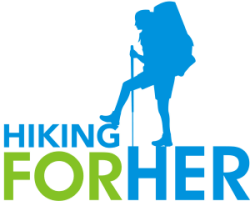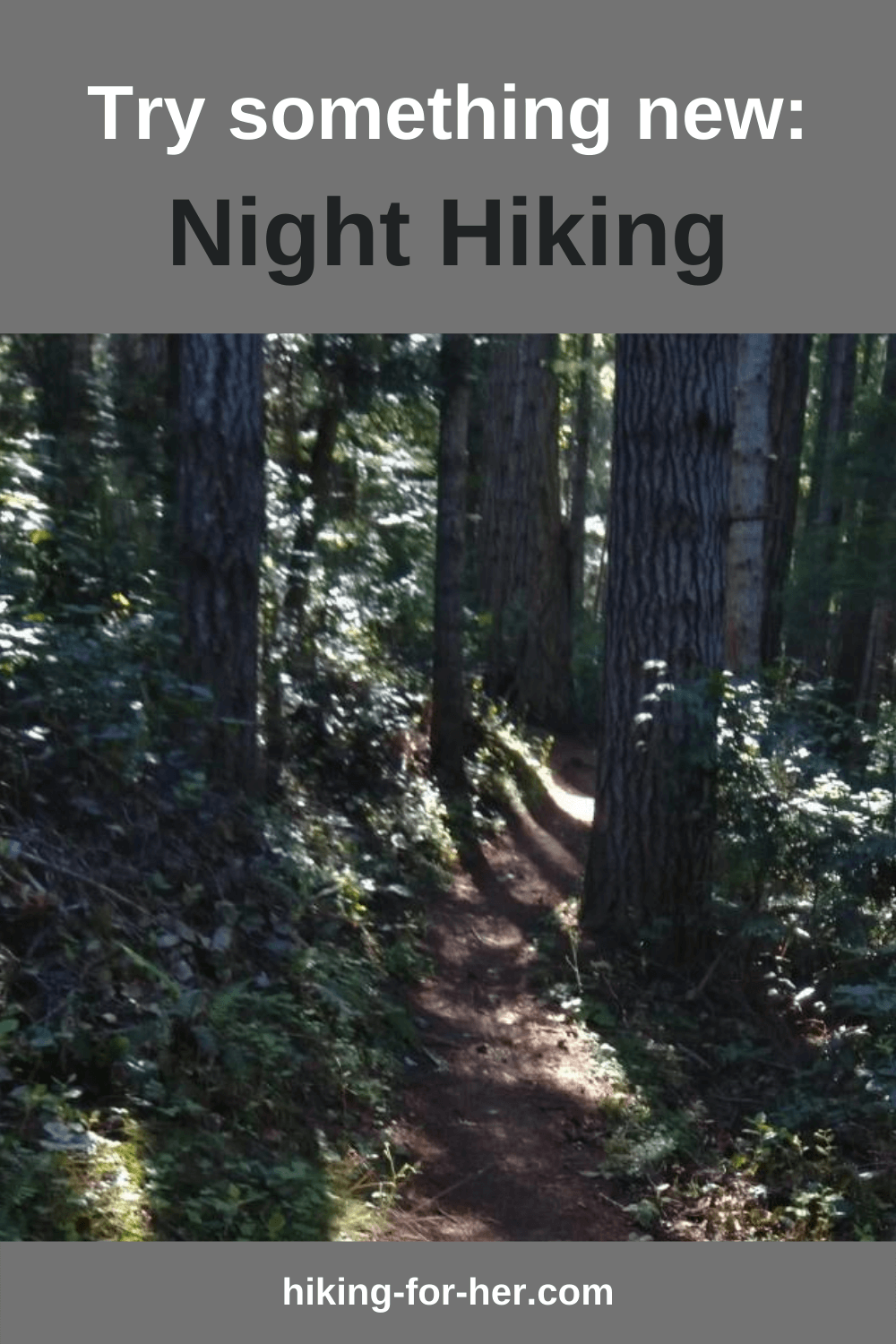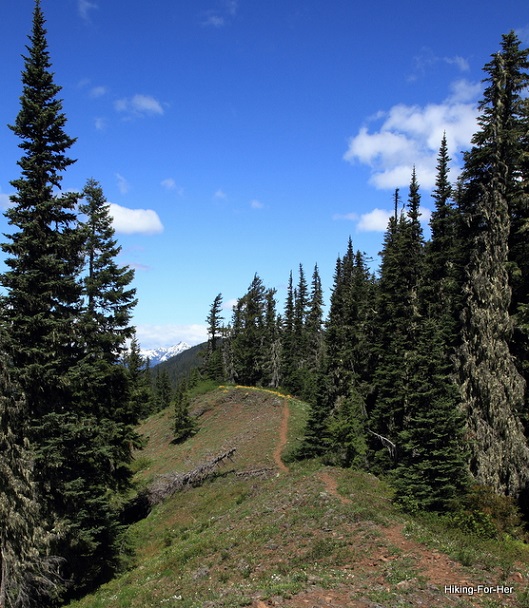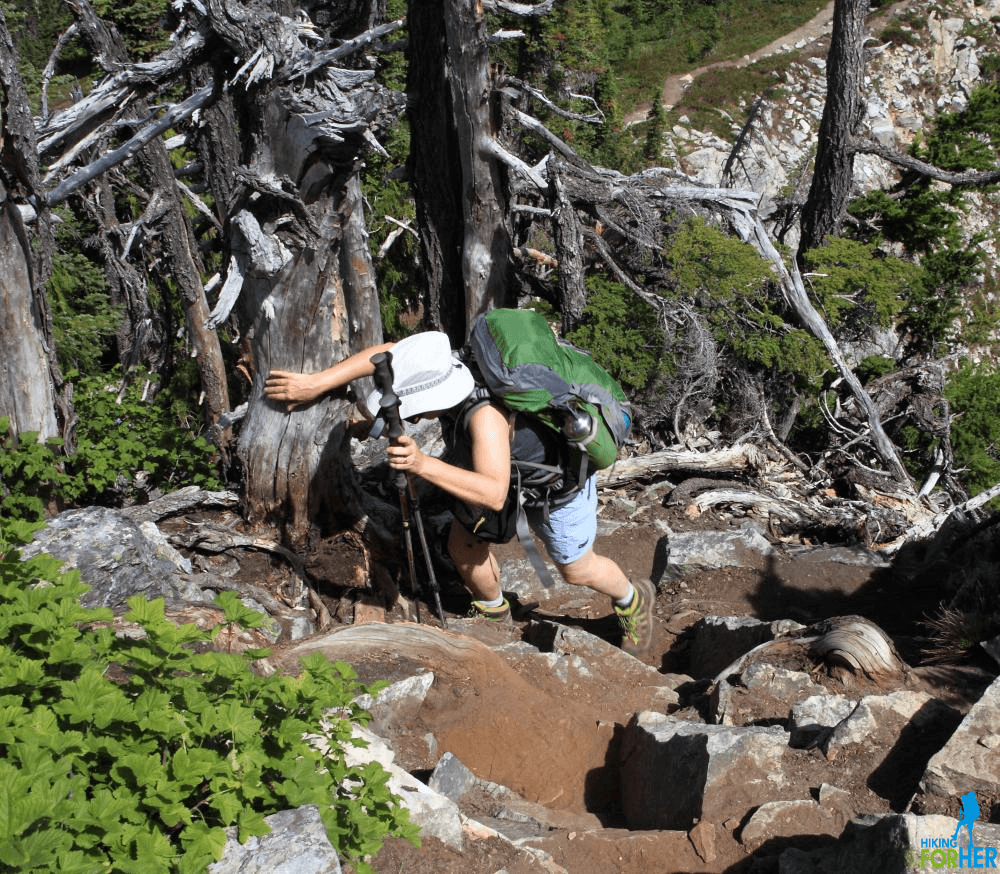Best Night Hiking Tips:
Go For A Hike In The Dark
By Diane Spicer
These best night hiking tips are for the insomniac hikers amongst us.
You know who you are!
You're either too exhausted after a long exciting day on the trail to fall asleep, or you're a night owl by nature.
Don't stare at the ceiling of your tent or bedroom.
Go for a night hike, using these how to hike in the dark tips.
Or hike at night when you're doing some hot weather hiking and want to avoid the brutal UV rays.
The other possibility?
You're just curious about what hiking in the dark would be like.
Regardless, let's get started!
Why a night hike
is highly recommended
There are two big reasons why hiking in the dark is something I recommend that you try at least once:
- expansion of your customary outdoors mindset
- connection to other people
If you have never settled onto your back and let out a huge sigh of contentment as you gazed up at the stars and moon, you've deprived yourself of something beyond description.
And it's not just the night sky that is mind blowing.
It's amazing how your night vision kicks in and you can navigate without your binocular color vision.
- Thank the plentiful rods in your eyes for that! They specialize in gray scale vision.
- Although not as well as other life forms designed for night life.
If you enjoy a night hike with an open view of the sky with other humans, you will experience a connection that again, is beyond description.
Being in the dark together strips away a lot of barriers and separation between us, and unites us in feeling very, very small beneath the night sky.
Hiking in the dark in a group is also an excellent way to build trust and support.
- It's one of the best ways to unify a hiking group and prepare for a long hiking trip.
- And it's an excellent way to pool your knowledge to build up your own reservoir of night hiking tips to pass on to the next generation.
Night hiking tips for you
Taking a hike at night is not recommended if you're a beginning hiker.
You need to find your trail rhythm first:
- Balance
- Posture
- Coordination
- Depth perception
- Stride
- Pace
Here are all of my beginner hiker tips!
But if you think you're ready yet still a bit nervous?
Find a full moon hike sponsored by a local park, to get a taste of what night hiking is like.
Best night hiking tips
If you've been at this hiking thing for a while and feel comfortable on the trail, there are a few steps to making night hiking as safe as possible.
Select a well known trail with no hazards
You want to focus on the night sky, not boulders or water crossings or steep terrain.
- This is easy if you're base camping in an area and know the trails already.
- You can also use a map to pick out a likely trail, if your map skills are strong and you understand map scales, symbols and topography.
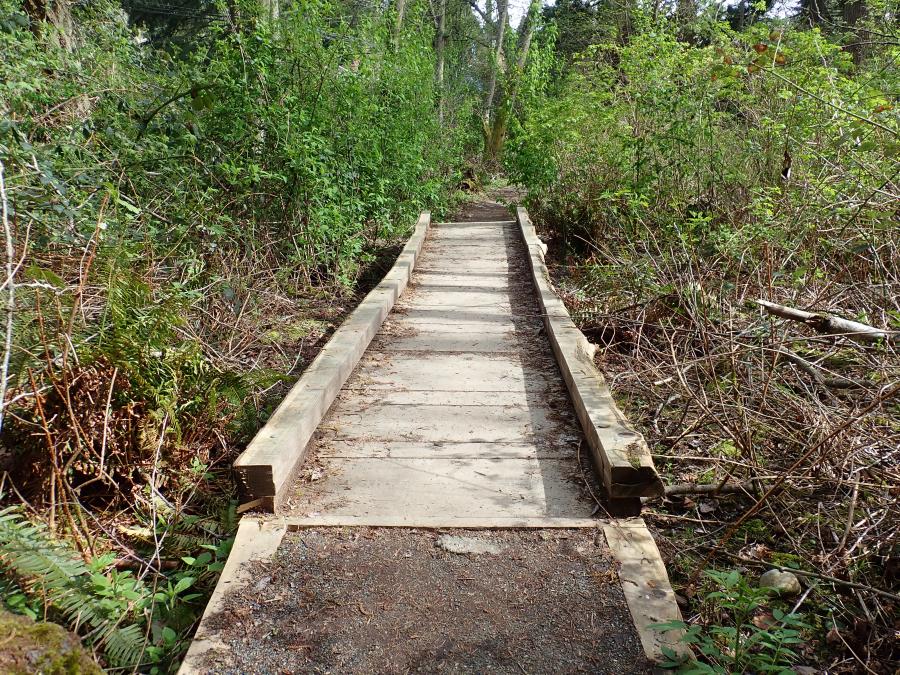 A bridge that looks easy in daylight might become more challenging in the dark
A bridge that looks easy in daylight might become more challenging in the dark
Dress in layers
Be prepared for moisture (dew) and the sensation of cold to settle onto your exposed face and hands.
And for insects to settle onto your flesh wherever they can.
Want to protect your skin against every eventuality on a night hike? Wear your rain gear.
Establish, and then don't ruin, your night vision
The human eye is not well designed for seeing in the dark, so expect to wait at least 15 - 30 minutes for your vision to adjust completely to low light conditions.
Wear a headlamp with a continuous red light option like this one, and use it sparingly. Check your batteries before heading out so you won't lose a vital navigational option while hiking in the dark.
"Palm your eyes occasionally, by closing your eyes and bringing your cupped hands up to them in a restful position. Seeing in the dark is hard work!
Relax your neck, shoulders and facial muscles as you gaze upward. If you're straining to see, it quickly becomes no fun to hike in the dark.
Use your peripheral vision, rather than looking at something straight on
It's not the rods in your retina you're using, it's the cones! They are centrally located and responsible for color vision, and leave no room for night vision rods in one area of your retina.
So you have a blind spot at night!
Not looking at things straight on, like you do in daylight, takes some getting used to. But you'll quickly get the hang of it if you persevere.
Speaking from personal experience, it's a frustrating (at first) but fun challenge for my brain.
- More ways that hiking makes you smarter right here!
If you can afford to travel,
go to the darkest spots on the map
If you really want the full night hiking experience, pick a spot with no ambient light pollution.
Here's a list of options for night hiking.
More tips for hiking at night
Don't rely upon your normal depth perception.
- You will feel clumsy and uncertain in ways that may alarm you as you feel your way along.
- Go slowly and trust yourself.
- If you're with other people, you can elect a leader and hike slowly and cautiously by putting a hand on the shoulder in front of you.
Make a little noise!
- Alert the local wildlife of your presence, to avoid surprise encounters.
- Unfortunately, this will scare off yetis and Big Foot ;)
Avoid panic when Big Foot shows up.
- If you hear crashing noises, realize that you are in someone's living room.
- Stand up tall, proud and LOUD. If you carry a whistle, now is a great time to blast it.
- If you have a big voice, use it.
- Don't run, because of the danger of tripping and falling.
- Once your heart rate drops again, realize what a whopper of a good hiking story you have to share!
Take a hike at night
every chance you get
Humans used to sleep under open skies, enjoying the dark inky blackness filled with twinkling lights.
Now that we're safely boxed up and have light at our disposal 24/7, we've forgotten what it's like to hike in the dark.
Night hiking can open up a deep understanding of your place in the universe, or at least teach you a new way of relating to a hiking trail.
Use these best night hiking tips to dip your toe into the fantastic world of hiking in the dark.
Happy Dark Night Skies!
If you have photos of your night hikes, or great night hiking tips, please share them here!
- They will be a great encouragement for other hikers to try the unusual sport of night hiking.
Best Night Hiking Tips
|
I get emails all the time about what I wear, eat, carry and love to use on the trail. That's
why I provide affiliate links to you: the best gear that I use myself and have seen used by other hikers is instantly
available for your consideration, and the gear company sends a few
pennies per dollar to this reader-supported hiking website. There is no added cost to you! Everyone ends up a winner: Great gear for you, strong gear companies, and more free hiking tips for everyone. Thanks very much for your support. It's warmly and sincerely appreciated. It also helps send these hiking tips to all your virtual trail buddies around the globe. |
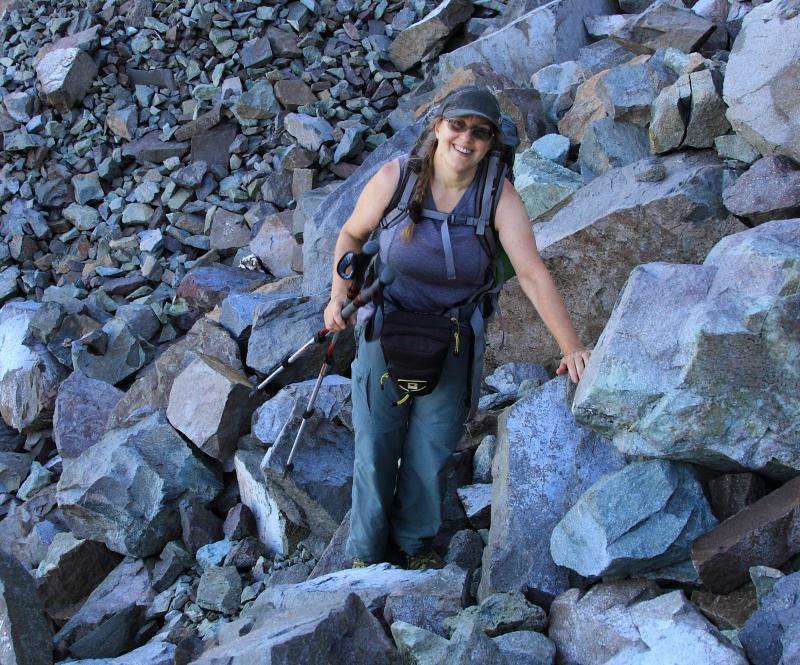 |
